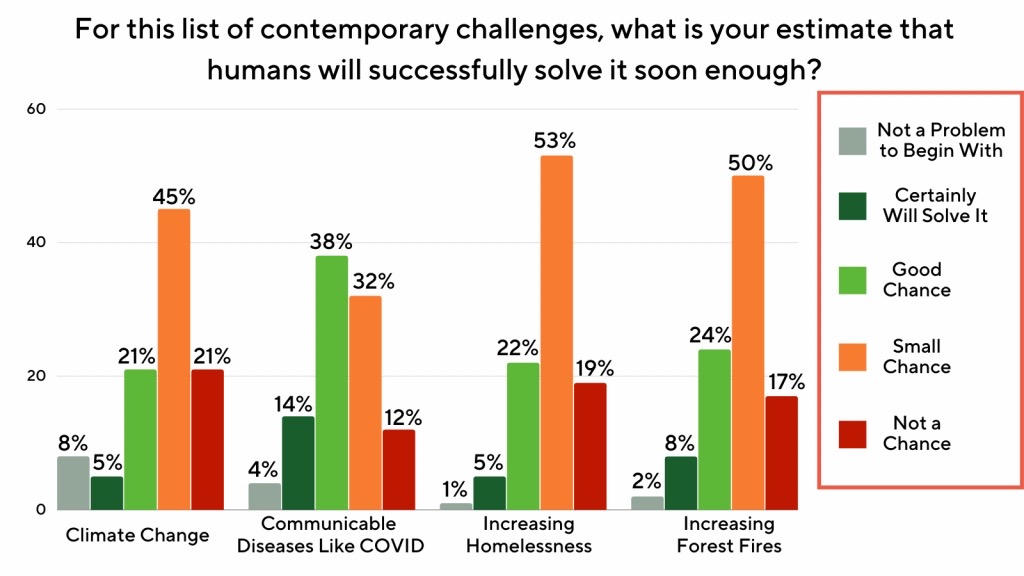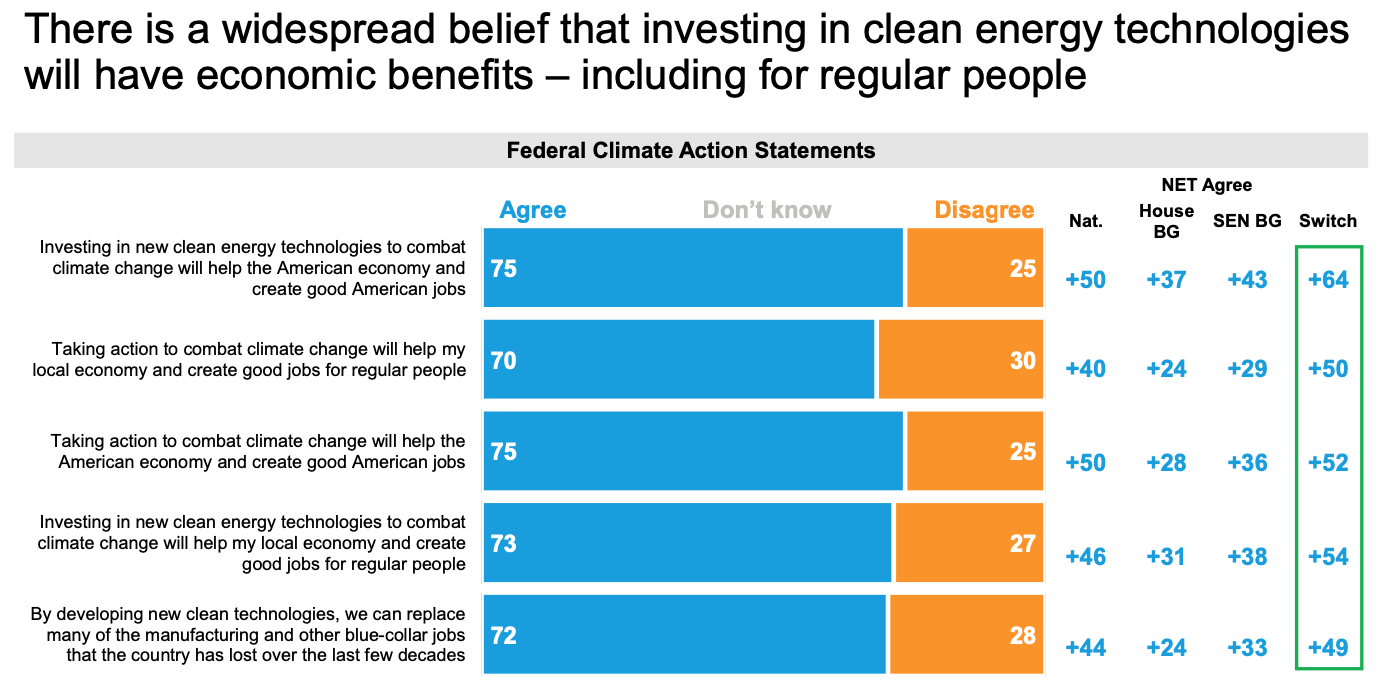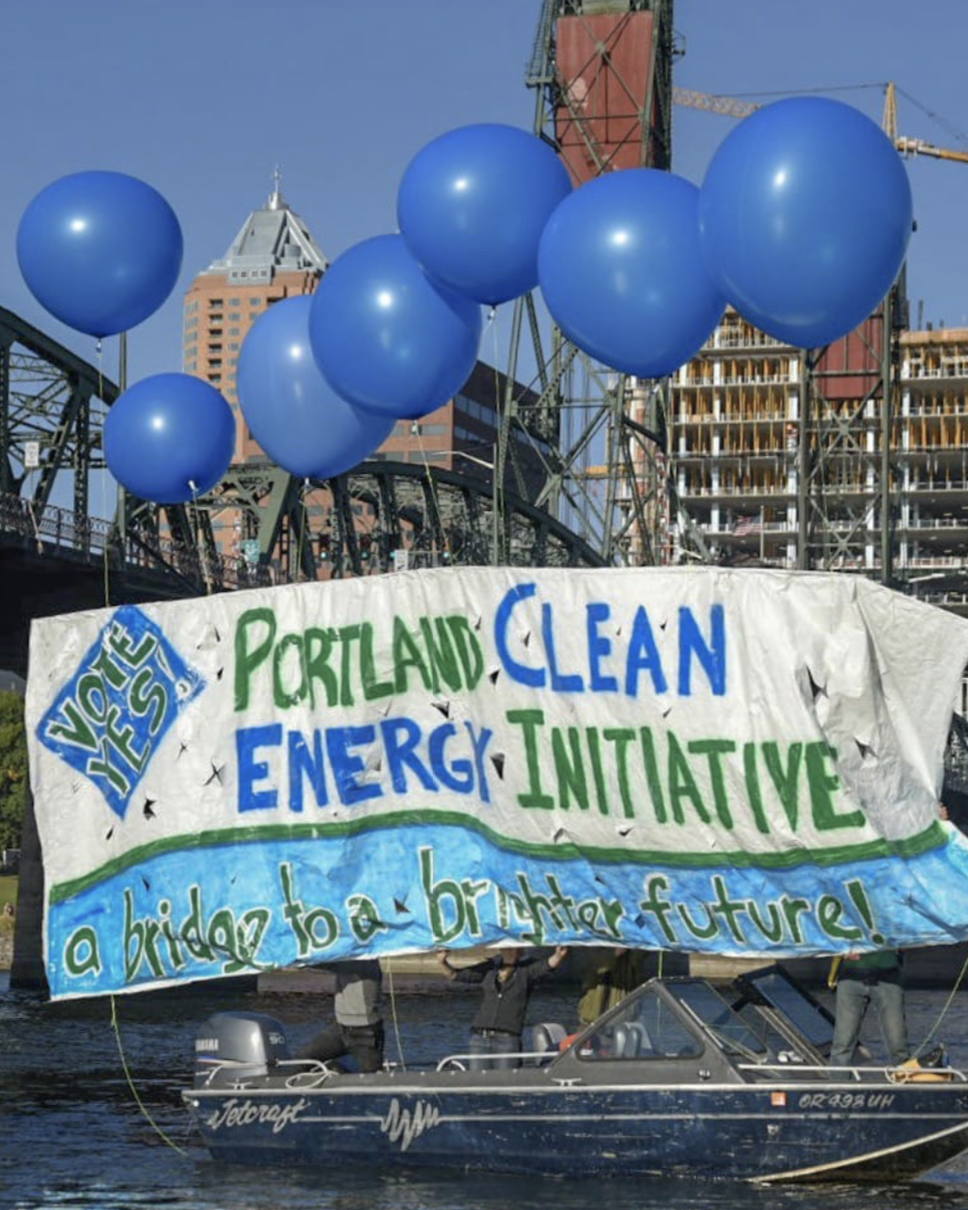Resources
Search below for resources covering the intersection of climate engagement, social science and data analytics.
RESULTS
A Decade Of Successes Against Fossil Fuel Export Projects In Cascadia
73% of initially planned oil, gas, and coal export projects in the region have been cancelled since 2012. Fossil fuel executives from dozens of companies once seemed to be salivating over the idea of exporting massive quantities of gas, oil, and coal from the Cascadia coast—but local communities, Tribes, environmentalists, and local governments rejected calls to turn Cascadia into a fossil fuel export terminal. They protested projects’ abrogation of Indigenous sovereignty, the risk of oil spills and damage to sensitive ecosystems, the pollution spewing from coal trains, the climate harms of extracting, transporting, and burning hydrocarbons, and the safety hazards of transporting flammable fuels through populated areas—and for the most part, they’ve won. Since 2012, fossil fuel interests have schemed more than 50 large projects to export coal, oil, gas, or their derivatives from Cascadia’s coast in British Columbia, Oregon, and Washington, and today, 40 of those—a whopping 73%—have been canceled by project backers who faced local opposition, see-sawing energy prices, and regulatory hurdles.
Climate Change: Oregonians answer some thought-provoking questions about their values and beliefs related to climate change
Try to combat the public’s fatalism about climate change. In this survey, two-thirds of Oregon residents are pessimistic about the chances of solving climate change in time. But most support government and individuals doing a lot more. 80 percent of respondents favor regulations that promote tree planting and prioritize renewable energy, and three-quarters feel that residents, as a matter or personal responsibility, should take steps to reduce their carbon footprints.
Poll: Voters Strongly Back Climate-related Infrastructure Investments
Survey data from 19 competitive House districts across the US revealed strong support (59%), across party lines, for the American Jobs Plan. Notably, the provisions that would address the climate crisis garnered even stronger support than the overall infrastructure plan did.
Among the specific provisions designed to address the climate crisis:
- 82% of voters support investments to rebuild roads and bridges and modernize public transportation to ensure it is cleaner and able to serve more people.
- 81% of voters support overhauling our country’s drinking water infrastructure.
- 70% of voters support addressing the challenge of climate change by shifting to greater use of clean energy, reducing carbon pollution from vehicles and industry, and making homes and buildings more energy efficient.
- 69% of voters support investments in clean energy such as wind and solar power by extending tax credits to spur innovation and manufacturing.
- 61% of voters support investments in electric vehicles and charging stations to reduce pollution and help more Americans buy clean cars.
Poll: Investing in American Clean Energy to Build the Industries of the Future
Key findings of a survey (phone and online) of US voters, with oversamples in key states include:
- Voters across the political spectrum overwhelmingly support government investments in clean energy technologies in order to rebuild the economy (77%), create good jobs (76%), and eliminate the carbon emissions that cause climate change (75%).
- There's a widespread belief (75%) that investing in clean energy technologies will have economic benefits – including for "regular people."
- And also that by developing new clean technologies, we can replace many of the manufacturing and other blue-collar jobs that the country has lost over the last few decades (72%)
- Strong support for various approaches to boost and develop specific clean energy technologies such as clean steel and cement, clean jet fuels, and energy storage and transmission.
- Voters support investing $75 billion in clean energy tech RD&D as part of the upcoming infrastructure bill.
Implementing the Portland Clean Energy Fund: Challenges and Opportunities
In 2018, the Portland Clean Energy Fund (PCEF) campaign secured a landslide ballot measure victory in Portland, establishing a multi-million dollar municipal fund that addresses climate, economic, and racial justice by providing funding for renewable energy projects, job training and apprenticeship programs, and regenerative agriculture. Last year, we got to look “under the hood” with PCEF Steering Committee members to cover the history of the campaign, what PCEF does, and how the community-led coalition was able to win at the ballot box.
In a follow-up webinar, we came back together to share new developments on the victory and cover topics including:
- How has PCEF been implemented, and how is it helping the community build political power?
- What lessons have been learned since winning the legislation, and what challenges and insights does that bring?
- What would it take to replicate this winning model in your own context and municipality?
Portland Clean Energy Fund Executive Summary: A Breakthrough for Climate and Justice
In November 2018, residents of Portland, Oregon, made history by passing The Portland Clean Energy Fund (PCEF), a breakthrough initiative that will raise an estimated $44-$61 million annually to support local clean energy and economic justice initiatives. The fund passed with 65 percent of the vote and support from a long list of local businesses and community organizations, including faith leaders, labor unions, and more. This Executive Summary captures toplines on what the campaign learned about what it takes to win.
Webinar: Winning By A Landslide: How we won the Portland Clean Energy Fund (PCEF)
How did the alliance behind the Portland Clean Energy Fund (PCEF) move a visionary idea from concept to groundbreaking reality? In this webinar, the Climate Advocacy Lab was joined in conversation with members of the PCEF Steering Committee for an "under the hood" look at the campaign's insights, challenges, and lessons learned –– also captured in a new, interview-based report that captures the "anatomy" of the campaign. This campaign secured a landslide ballot measure victory in Portland in November 2018, establishing a multi-million dollar municipal fund that will address climate, economic, and racial justice by providing funding for renewable energy projects, job training and apprenticeship programs, and regenerative agriculture.
A Template for Change: The Portland Clean Energy Fund as a Local Model for a Green New Deal
This report details the anatomy of the campaign and strategy that achieved the groundbreaking Portland Clean Energy Fund (PCEF), a multi-million dollar fund that addresses climate, economic, and racial justice in Portland, OR.
Solar with Justice
Under-resourced communities face a disproportionate share of societal burdens and lack access to many of the benefits other communities enjoy. Participation in the solar economy can help ease these burdens and provide low-and middle-income households with economic relief.



